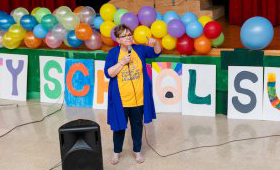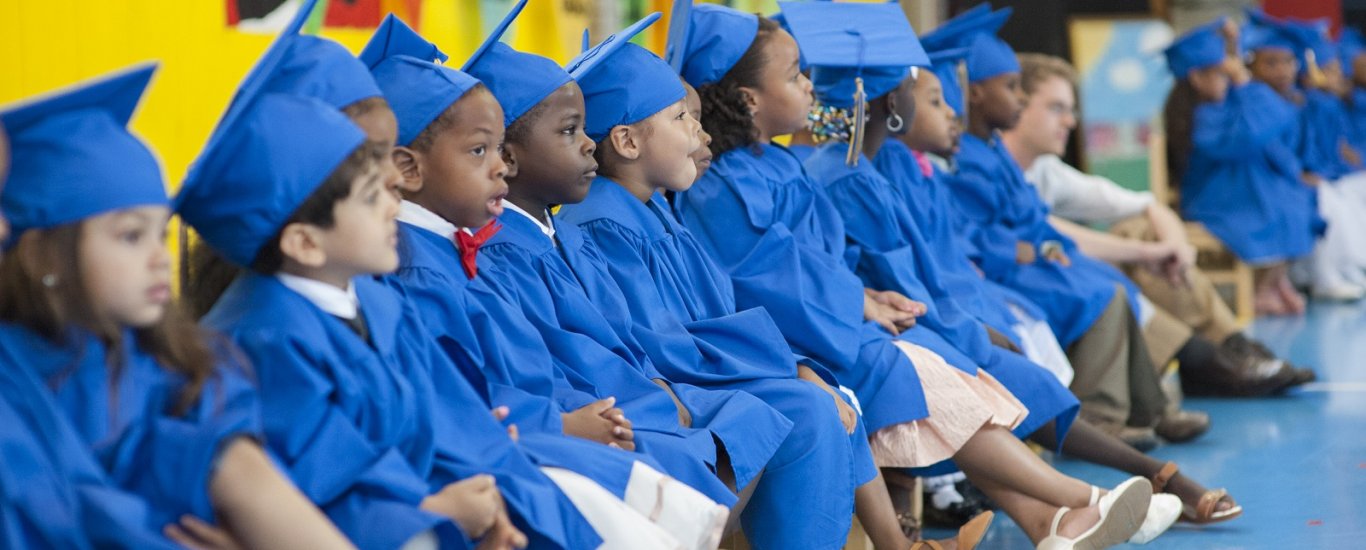Preparing New York foster youth for life after state-supported care is the focus of a newly announced coalition of organizations.
The Fostering Youth Success Alliance (FYSA), a coalition of 17 community-based organizations from every corner of New York State, will work to establish a comprehensive support system for college-age foster youth to ensure that their success in higher education improves dramatically. Preparing New York foster youth for life after state-supported care is the focus of a newly announced coalition of organizations.
The Fostering Youth Success Alliance (FYSA), a coalition of 17 community-based organizations from every corner of New York State, will work to establish a comprehensive support system for college-age foster youth to ensure that their success in higher education improves dramatically.
In 2015, approximately 11,000 children and youth will enter New York’s foster care system. For some, their stay will be short, a respite from a moment of crisis at home. For many, their entry will mark the beginning of a challenging period in their life with lasting consequences on their health and educational outcomes as well as their socioeconomic futures.
“The longer young people are in foster care, the more difficult it can be for them to get out, whether it’s a reunification with their families, or finding an adoptive family to offer a safe, loving home,” said Phoebe Boyer, the president and CEO of The Children’s Aid Society, a lead organization in the alliance. “This is especially true for older foster youth. And the absence of family supports has substantial repercussions as teens approach adulthood and independence, especially with regard to their decisions about higher education and career opportunities.”
Of the 20,000 youth in New York’s foster care system at any one time, 4,000 are college-age. Only one of five of those youth will ever set foot on a college campus of any kind. By comparison, 60 percent of high school graduates in the general population go on to higher education.
Acceptance to a college or university is just one hurdle for foster youth to clear. Succeeding becomes even more difficult, due to gaps in funding, difficulty navigating financial aid processes, and the absence of academic and social supports attuned to youth in care. Estimates from national studies suggest college graduation rates of 2-7 percent for foster youth.
People with a bachelor’s degree in New York earn about twice as much annually as those with only a high school diploma. Given the dismal college success rate for youth in care, the adulthood outcomes for foster youth make sense. Consider these facts:
- A quarter of foster youth will experience homelessness within the first four years of aging out of the system.
- At age 24, only half of these youth will be employed.
- One in four will be entangled in the justice system within two years of exiting foster care.
The alliance will appeal to the state Legislature and Gov. Cuomo for increased funds to help improve lifelong outcomes for foster youth.
“If government helps these youth get into college and stay there, their lives will improve substantially,” Boyer said. “Currently 22 states offer full tuition waivers to foster youth, and some go even further in providing supports. New York is not yet one of those states, but the Fostering Youth Success Alliance will be advocating to change that situation in 2015.”
Members of the FYSA Steering Committee are:
Care Management Coalition of Western NY (http://cmcwny.org/ )
Region – Buffalo
The Children’s Aid Society (http://www.childrensaidsociety.org/ )
Region – New York
Council of Family & Child Caring Agencies (http://www.cofcca.org/ )
Region – Statewide
Community Service Society of New York (http://www.cssny.org/ )
Region – New York
Elmcrest Children’s Center (http://www.elmcrest.org/ )
Region – Syracuse
Federation of Protestant Welfare Agencies (http://www.fpwa.org/cgi-bin/iowa/home/index.html )
Region – New York
FEGS Health & Human Services (http://www.fegs.org/ )
Region – New York
Good Shepherd Services (http://www.goodshepherds.org/ )
Region – New York
Graham Windham (http://www.graham-windham.org/ )
Region – New York
Hillside Family Agencies (http://www.hillside.com/ )
Region – Buffalo, Rochester and Syracuse
Hope for Youth (www.hfyny.org )
Region – Nassau & Suffolk
New Directions for Youth & Family Services (http://fosteringgood.org/ )
Region – Buffalo
New Yorkers for Children (http://newyorkersforchildren.org/ )
Region – New York
Schuyler Center for Analysis and Advocacy (http://www.scaany.org/ )
Region – Statewide
Westchester Children’s Association (http://www.wca4kids.org/ )
Region – Westchester
Youth In Progress (http://www.youthinprogress.org/ )
Region – Statewide
Youth Power (www.youthpowerny.org )
Region – Statewide
The Children’s Aid Society is an independent, nonprofit organization established to serve the children of New York City. Our mission is to help children in poverty to succeed and thrive. We do this by providing comprehensive supports to children and their families in targeted high-needs New York City neighborhoods. Founded in 1853, it is one of the nation’s largest and most innovative non-sectarian agencies, serving New York’s neediest children. Services are provided in community schools, neighborhood centers, health clinics and camps. For additional information, please call Anthony Ramos at (212) 949-4938/ (917) 204-8214, email anthonyr@childrensaidsociety.org or visit www.childrensaidsociety.org.>



